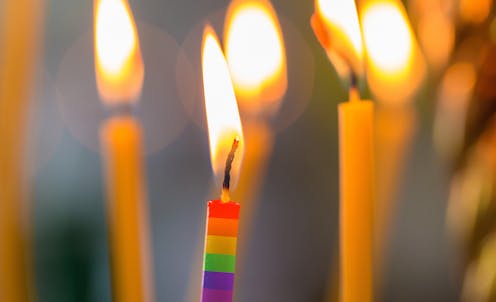
The religious discrimination bill is due to be debated in parliament this week. This has been a long time coming – Prime Minister Scott Morrison first promised a religious discrimination bill before the last federal election, more than three years ago.
In large part, the delay stems from vast disagreement – both inside parliament and in the community – about what the bill should contain. There is broad agreement a person should not be discriminated against on the basis of their faith or lack of faith. However, the extent to which religion should be a licence to discriminate against others remains enormously contentious.
As MPs return to Canberra, who supports the bill? Who opposes it? What might happen?
Two inquiries into the bill
After Morrison introduced the bill into parliament in December 2021, it was sent to the legal affairs and human rights committees.
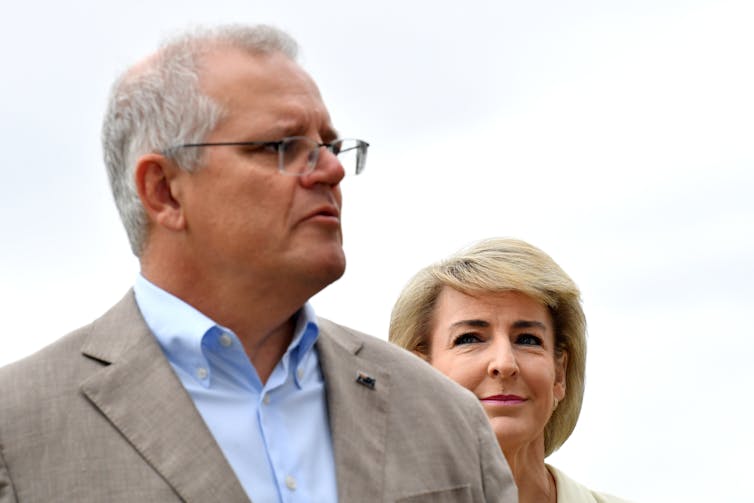
On Friday, both recommended the bill be passed – but only after a series of changes. In their reports, both committees said there were serious doubts about the constitutional validity of some elements of the bill.
Both committees chaired by government MPs. But any committee member can make additional comments or dissent from the main findings.
Overriding state protections
One of the key sticking points is a clause allowing religious schools to discriminate against staff members on religious grounds if the school has a written policy on its religious position.
This provision overrides also existing federal, state and territory protections against discrimination and permits schools to sack LGBTIQ+ teachers.
Read more: Third time lucky? What has changed in the latest draft of the religious discrimination bill?
Attorney-General Michaelia Cash’s office has acknowledged discrimination against gay staff will be allowed, provided it is done under the guise of religious views.
Parliament’s human rights committee said this provision “is an important measure to […] maintain the religious ethos of the school” even though it “may limit the right to freedom of religion and equality and non-discrimination for others”.
Statements of belief
Another sticking point concerns statements of belief. This provision overrides every federal, state and territory anti-discrimination law to make “statements of belief” immune from legal consequences if they are based on a genuinely held religious view.
For example, statements of belief could include a male boss saying to a female employee, “women should not hold leadership positions” or a doctor saying to a patient, “disability is a punishment for sin”.
Parliament’s human rights committee said this clause “operates, in the main, to give reassurance to people of faith that they are able to make moderately expressed statements of religious belief”.
But in extra comments to the legal affairs committee report, NSW Liberal senator Andrew Bragg,warned:
Strong evidence has been provided to the committee that the statement of belief is unworkable and undesirable. Numerous employers, religious organisations, anti-discrimination groups and legal experts are against it.
The Australian Human Rights Commission is also concerned this statement of belief provision might make it more difficult to deal with cases of sexual harassment at work.
No protection for gay and trans kids at school
On Thursday, Morrison promised he would amend the Sex Discrimination Act to take away the right of religious schools to expel LGBTIQ+ students.
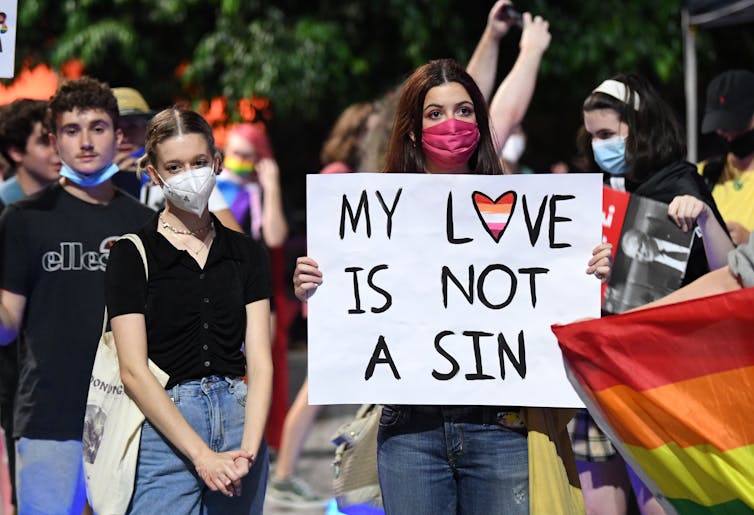
This promise was met with fierce opposition from conservative groups: FamilyVoice Australia called it a “betrayal”. Christian Democratic Party campaign director Lyle Shelton said Christian parents had been “thrown under a bus”.
But even if Morrison delivers on this promise about expulsion, this will not stop religious schools discriminating against gay and trans kids while they are at school, providing they aren’t expelled.
Religious groups are divided
It is important to note religious groups do not agree among themselves. Conservative religious groups like the Australian Catholic Bishops’ Conference and the Sydney Anglican Diocese support the bill.
But other religious groups disagree. The broader Anglican Church opposes the bill in its current form. Its Public Affairs Commission says the bill gives “too much unnecessary scope and encouragement for harmful discriminatory behaviour in the name of religion”.
Catholic welfare agencies feel the same. The St Vincent de Paul Society says “people will be hurt […] and will have no legal remedy”, while Sacred Heart Mission says the bill “will exclude people from accessing essential services”.
Minority religious groups are also worried. The Buddhist Council of NSW believes, the bill “may worsen religious discrimination against people from minority faith groups”.
The major parties are divided
Meanwhile, the bill’s path through parliament is still uncertain. Moderate Liberal MPs such as Dave Sharma, Trent Zimmerman and Bridget Archer are threatening to cross the floor unless the bill is watered down. Bragg has called for the statement of belief provision to be removed and for protections to be introduced to shield both students and teachers from discrimination by religious schools.
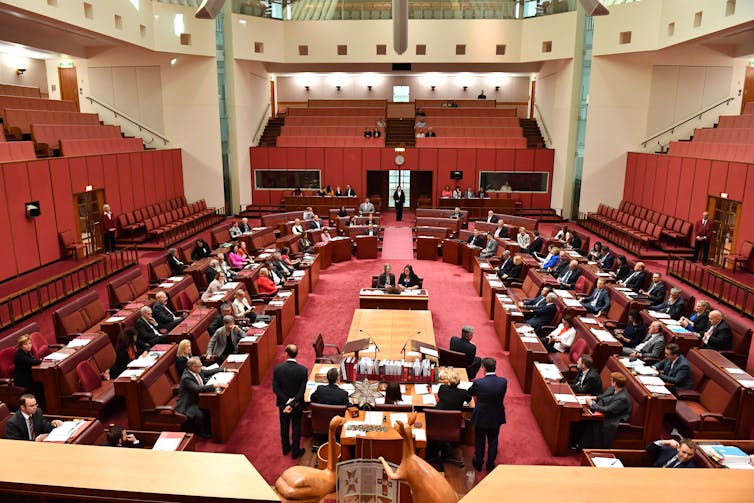
Labor’s extra comments to the legal affairs committee report warned the bill should not “remove existing protections Australians already enjoy against other forms of discrimination”.
But the opposition is trying to walk both sides of the street. Labor members on the parliamentary committees signed up to the main reports but added extra comments emphasising the need for amendments. This allows Labor to say it supports the bill and that it wants to change the controversial bits – depending on who it’s talking to.
If Morrison risks some of his own MPs crossing the floor and calls a vote on the bill as it currently stands, Labor will have to declare its hand. Labor is expected to finalise its position for this week’s debate at its regular parliamentary meeting on Tuesday.
Where is this heading?
There’s almost no time left before the election to make amendments (or at least properly thought out amendments) and pass the bill. The Senate sits for only five days before the election is expected to be called.
Following the Citipointe Christian College scandal last week, it is not clear that passing laws to allow discrimination against gay and trans people is a vote winner for either the Coalition or Labor.
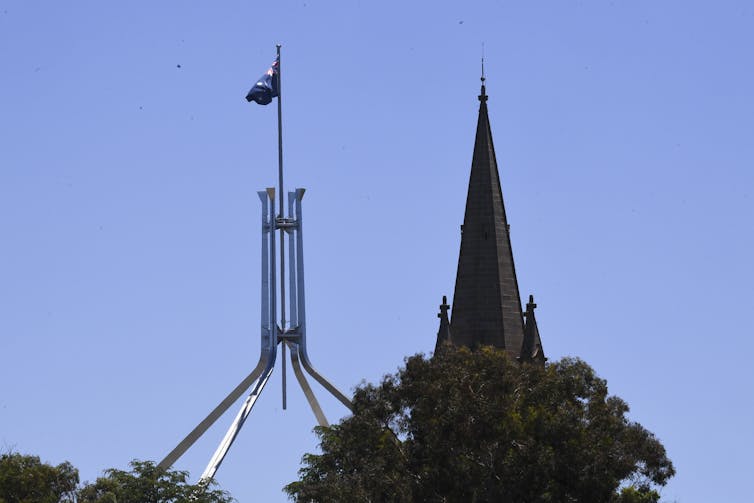
Seemingly pre-empting the bill passing, the Pentecostal school asked parents to sign “contracts” agreeing that being gay or trans is as “destructive to human relationships and society” as paedophilia, and trans kids would only be welcome if they did not attend as the gender with which they identify. A backlash from families forced the school to back down and the principal is now on “extended leave”.
If Pentecostal families don’t support this kind of thing, it’s hardly likely families from more mainstream religious groups would either. But if the bill is passed without significant changes, we can expect to see many more situations like Citipointe’s.
The messy debate over religious discrimination in Australia continues.
Luke Beck made submissions to the parliamentary inquiries considering the Bill, is a member of the Australian Labor Party and is on the board of the Rationalist Society of Australia Inc. This article reflects only his personal views.
This article was originally published on The Conversation. Read the original article.







